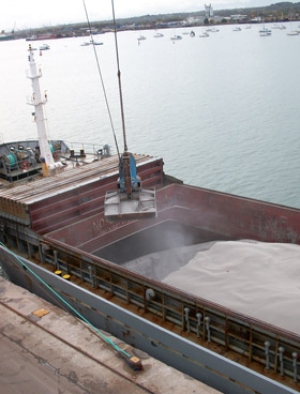


(Posted on 14/10/24)
The International Fertilizer Association (IFA) is partnering with supply chain decarbonization startup Proba, to support the development of a new quantification and verification standard to incentivize the wider adoption of enhanced-efficiency fertilizers, specifically focusing on nitrification and urease inhibitors. These inhibitors are compounds that can be added to inorganic or organic fertilizers to reduce nitrogen losses, including greenhouse gas emissions (GHG) such as nitrous oxide, by slowing down specific biological processes.
By working with the voluntary carbon market, this programme aims to create a powerful mechanism to share costs and de-risk the adoption of inhibitors across the fertilizer supply chain, using insetting strategies to drive both innovation and sustainability.
Fertilizers are an essential agricultural input, supplying critical nutrients like nitrogen, phosphorus and potassium to crops. By enhancing soil fertility and boosting crop yield, they are key to feeding the global population and supporting human nutrition. However, the production and application of nitrogen fertilizers alone contribute to about 1.1billion tonnes of CO2-equivalent greenhouse gas emissions, of which about 60% occur as nitrous oxide from agricultural fields 1.
IFA Project lead, Chief Scientist Achim Dobermann, said: “We are excited to begin the first stage of this important project, focused on the downstream supply chain of nitrogen-based fertilizers. We believe that a well-coordinated, science-based, and technology-focused approach led by IFA and its members is more effective and sustainable than a multitude of individual, product-specific protocols. Building on inhibitors as a first use case, this project could evolve towards a broader, sectoral decarbonization program linked to carbon finance.”
Sijbrand Tieleman, CEO at Proba said: “There are too many emissions in the agri-food supply chain, with fertilizers contributing around 7% of the total. These emissions are hard to eliminate, but proven technology exists today to reduce them significantly. Inhibitors, for example, can cut greenhouse gas emissions by up to 50%, depending on regional, crop, and soil conditions. The challenge now is incentivizing the supply chain to adopt this technology at scale. By using an insetting approach – where emissions reductions are accounted for within the supply chain itself – and leveraging carbon finance, we can support farmers in this transition. Downstream participants in the value chain, such as food companies, can report reduced scope 3 emissions and market greener products without fear of greenwashing. The technology is mature, effective, and ready for adoption now. We’re excited to work with IFA to make this vision a reality.”
The National Grain and Feed Association (NGFA) has applauded Senator Deb. Fischer’s (R-Neb.) reintroduction... Read more
Anglo American plc and Teck Resources Limited have received regulatory approval from the Government... Read more
The Rhodes Ridge Joint Venture has approved a $191 million (A$294 million) (Rio Tinto share $96 million... Read more
Trafigura Group Pte Ltd, a global leader in the commodities industry, has announced its financial results... Read more
Rio Tinto has successfully produced the first copper from the Johnson Camp mine in Arizona using its... Read more
The American Soybean Association’s World Initiative for Soy in Human Health programme and the... Read more
Karlka Nyiyaparli Aboriginal Corporation (KNAC) Registered Native Title Body Corporate and Rio Tinto... Read more
OCI Global, a leading global producer and distributor of nitrogen products has announced that it has... Read more
In December 2024, SSAB was granted a permit by the Land and Environment Court at Umeå District... Read more
The President of the Republic of Guinea has joined project partners WCS1, Baowu, Chinalco and Rio Tinto... Read more